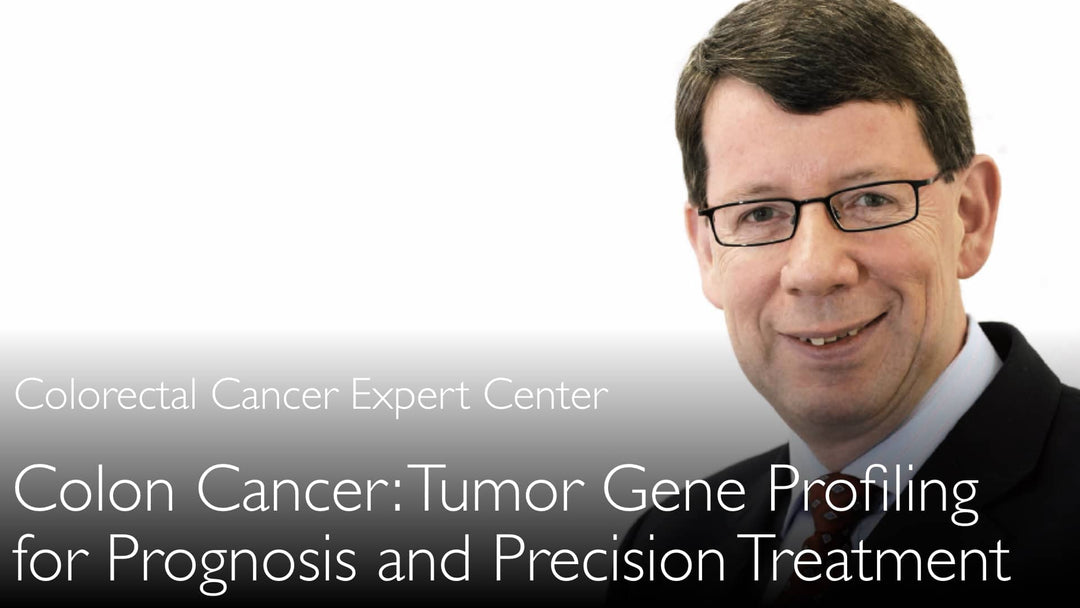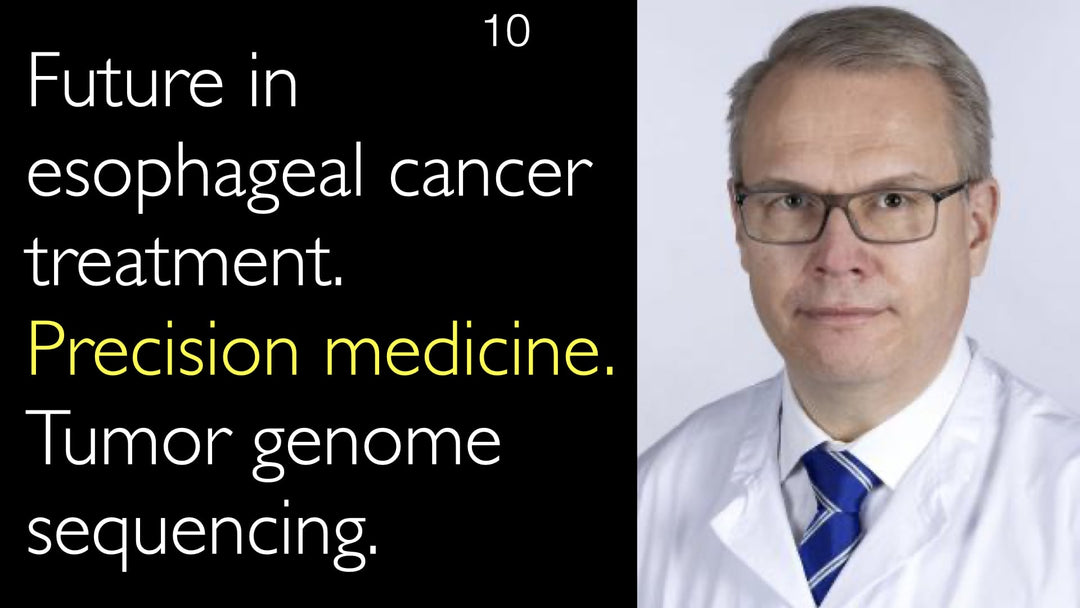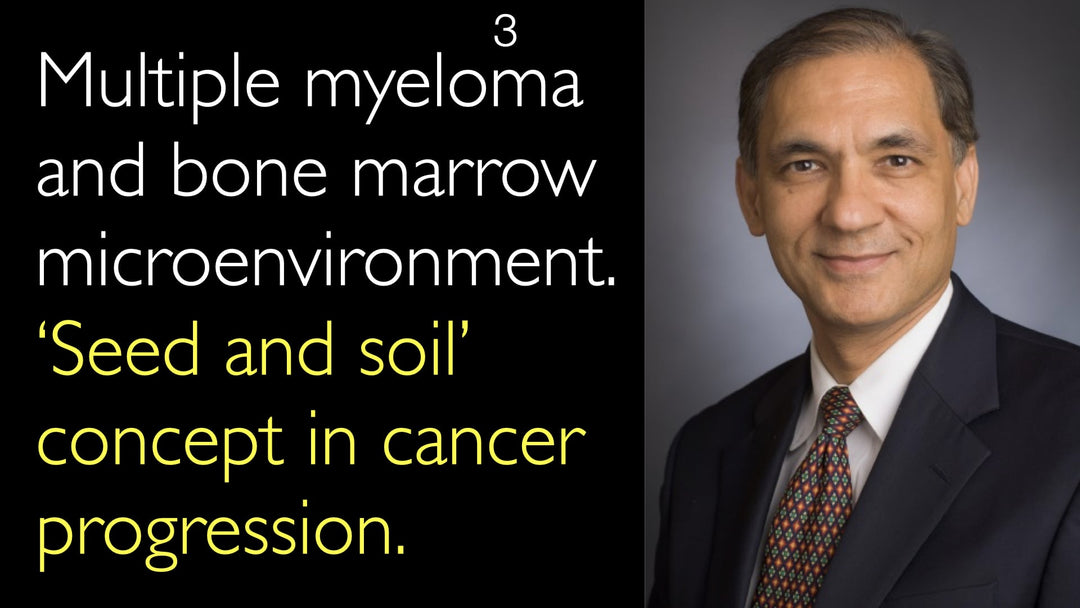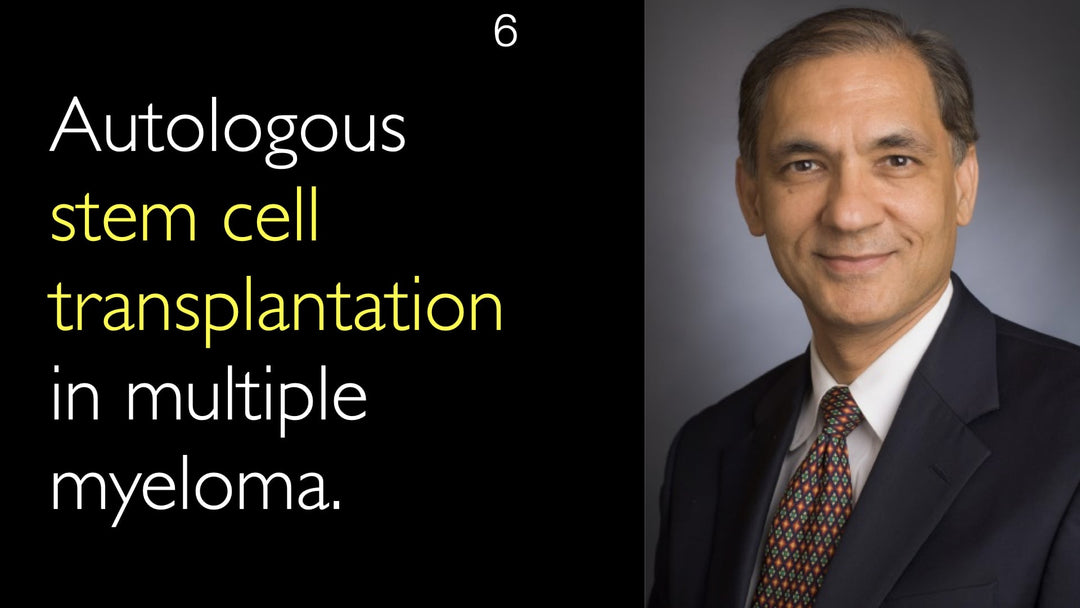Leading expert in colorectal cancer, Dr. David Kerr, MD, explains how genetic profiling of both the tumor and the patient can predict chemotherapy efficacy and toxicity, enabling true personalized medicine. This approach identifies Stage 2 colon cancer patients who will benefit from adjuvant therapy and those who can safely avoid it, while also forecasting which patients are at high risk for severe treatment side effects, thereby optimizing outcomes and reducing unnecessary harm.
Predicting Colorectal Cancer Chemotherapy Response and Toxicity with Genetic Profiling
Jump To Section
- Precision Medicine in Colorectal Cancer Treatment
- 7-Gene Signature for Prognosis and Chemotherapy Benefit
- Predicting Chemotherapy Toxicity with Patient Genetics
- Genetic Profiling from Standard Paraffin-Embedded Tumors
- Integrating Tumor and Host Genetic Data for Treatment Decisions
- Reducing Unnecessary Chemotherapy in Stage 2 Colon Cancer
- The Future of Personalized Oncology for Colorectal Cancer
Precision Medicine in Colorectal Cancer Treatment
Precision medicine is revolutionizing colorectal cancer treatment by moving beyond a one-size-fits-all approach. Dr. David Kerr, MD, a leading colorectal cancer expert from Oxford, emphasizes the critical need to personalize therapy. This is especially vital in Stage 2 colon cancer, where the benefit of adjuvant chemotherapy is marginal for most patients. Dr. Anton Titov, MD, highlights the stark statistics: treating 100 Stage 2 patients may only cure 3 or 4, while exposing up to 40% to significant toxicity and the burden of six months of treatment.
7-Gene Signature for Prognosis and Chemotherapy Benefit
A landmark study led by Dr. David Kerr, MD, in collaboration with Genomic Health and the NSABP, analyzed 4,000 colorectal cancer patients. The research identified a specific 7-gene expression signature from tumor RNA. This signature powerfully identifies Stage 2 patients at high risk of relapse who are most likely to benefit from adjuvant chemotherapy. Conversely, it also pinpoints patients with an excellent prognosis for whom the risk of chemotherapy outweighs any potential benefit, allowing them to safely avoid toxic treatment after surgery.
Predicting Chemotherapy Toxicity with Patient Genetics
Predicting efficacy is only one part of the personalized medicine equation. Dr. David Kerr, MD, also focuses on predicting toxicity, or "toxnostics." Through genome-wide association studies, his team identified germline genetic variants (SNPs) that indicate which patients are most likely to develop life-threatening or serious side effects from chemotherapy. This genetic profiling allows oncologists to preemptively modulate chemotherapy dosages or, in extreme cases where the risk of death from toxicity is very high, avoid chemotherapy altogether for that individual patient.
Genetic Profiling from Standard Paraffin-Embedded Tumors
A key advancement making this science widely applicable is the use of standard paraffin-embedded tumor blocks. Dr. David Kerr, MD, notes that extracting RNA from these samples, which every pathology laboratory in the world handles routinely, is technically difficult but achievable. This eliminates the need for difficult-to-obtain fresh frozen tumor tissue, making sophisticated molecular profiling accessible to clinics globally, not just major academic centers like Oxford. Dr. Anton Titov, MD, confirms this is a critical achievement for democratizing precision medicine.
Integrating Tumor and Host Genetic Data for Treatment Decisions
The most complete picture for treatment decision-making comes from integrating data from both the tumor and the host—the patient. Dr. David Kerr, MD, stresses that the genetics of the colon cancer and the patient are intimately linked. A holistic approach that combines knowledge of tumor biology with the patient's genetic response to chemotherapy elevates precision medicine to a new level. This dual analysis provides a comprehensive view of both treatment efficacy and potential toxicity, guiding truly personalized care.
Reducing Unnecessary Chemotherapy in Stage 2 Colon Cancer
The clinical impact of this genetic profiling is profound in reducing overtreatment. For Stage 2 colorectal cancer, the majority of patients undergo chemotherapy without deriving any benefit. The 7-gene signature directly addresses this problem by identifying the small subset of high-risk patients who need treatment and the larger group with a low risk of recurrence who can be spared the toxicity, social inconvenience, and financial cost of unnecessary chemotherapy.
The Future of Personalized Oncology for Colorectal Cancer
The work of Dr. David Kerr, MD, points toward a future where every colorectal cancer treatment plan is tailored to the individual. By applying genetic profiling for both prognosis and toxicity prediction, oncologists can maximize therapeutic efficacy while minimizing harm. This represents the pinnacle of personalized oncology, ensuring that the right patient receives the right drug at the right dose, ultimately improving survival rates and quality of life for colorectal cancer patients worldwide.
Full Transcript
Dr. Anton Titov, MD: How does colorectal cancer gene profiling help to identify patients who might experience significant toxicity from chemotherapy? Use of tumor DNA and RNA and patient’s genetic data to predict colon cancer treatment efficacy. Who will not require systemic chemotherapy after resection of primary colorectal cancer?
You write, "We have to treat with chemotherapy a hundred Stage 2 colorectal cancer patients to cure 3 or 4 colon cancer patients. Up to 40% of colon cancer patients treated will suffer significant toxicity. They will face distinct social and often financial inconvenience of outpatient colorectal cancer chemotherapy for six months."
You developed a particular method of colorectal cancer gene profiling. It is helpful in identifying those colorectal cancer patients who would benefit from the chemotherapy the most. Could you please discuss this colorectal gene profiling discovery? How does it help in selection of personalized therapy of colorectal cancer?
Dr. David Kerr, MD: You said this very well. We looked at prognostic markers for colorectal cancer patients. We did a large experiment in collaboration with the company Genomic Health. We got colorectal tumor RNA out of paraffin embedded colon cancer tumor blocks.
Why is it important? Because every pathology laboratory in the world is very good at handling tumor specimens embedded in paraffin. This gives us a large tumor sample base to work on. Extracting RNA for molecular profiling from an embedded colorectal tumor sample is difficult technically.
We worked on genomic profiling of colorectal cancer with Genomic Health and with NSABP, a large American clinical trials group. We studied 4,000 patients with colorectal cancer. We identified a set of 7 genes.
These 7 genes can identify Stage 2 colorectal cancer patients who were most at risk of cancer relapse. The expression pattern of these 7 genes showed important information. It identified patients who will benefit from adjuvant chemotherapy to treat Stage 2 colorectal cancer after surgery.
These 7 genes also identified colon cancer patients who had excellent prognosis. Their chance of cancer returning would be very small. They would not benefit from adjuvant chemotherapy after surgical colon cancer removal.
As you said, genetic profiling of the tumor would avoid excessive over-treating some colorectal cancer patients with potentially toxic chemotherapy. Some patients would not benefit from colon cancer chemotherapy after surgical treatment.
It is important to look at RNA profiles in colorectal cancer tumors. But it is also important to look at patient's response to toxicity after treatment with colorectal cancer chemotherapy. This helps to predict side-effects of colon cancer chemotherapy.
We have just completed a genome-wide association study. We identified germline genetic variants (SNPs). This will tell us which colorectal cancer patients are most likely to develop a life-threatening or serious toxicity. We call this "toxnostics".
We published a Nature Reviews paper about this method. This genetic profiling method allows us in advance to identify those colorectal cancer patients who are likely to get serious toxicity. We then can modulate colon cancer chemotherapy dosages.
In some cases, we can find colorectal cancer patients for whom the risk of death from chemotherapy toxicity is very high. These cancer patients should avoid chemotherapy altogether.
Dr. Anton Titov, MD: Putting together a genetic profile of tumor and host gives us a very complete picture. We can find those patients who would benefit most from colon cancer chemotherapy.
It's a true personalized medicine example. You study not only the tumor, but also the patients. Precision medicine on both sides is an example of modern colon cancer treatment.
Dr. David Kerr, MD: Exactly! We cannot disregard genetics of both colon cancer tumor and its "host", the patient. The two are intimately linked together. We have to treat the whole colorectal cancer patient. We do not treat just the colon cancer tumor.
We cannot treat the colon cancer independently of the patient. We have to combine the knowledge of colon cancer tumor biology with how the host (the patient) responds to chemotherapy on a genetic level.
This approach allows us to look at both sides of cancer treatment. It takes precision medicine to treat colorectal cancer patients to a new level. We combine efficacy and toxicity knowledge to treat colorectal cancer patients.
Dr. Anton Titov, MD: As you highlighted, no special preparation of tumor sample is required. Therefore the standard preparation of colon cancer biopsy or surgical excision of tumor can be applied to DNA microarray testing.
Dr. David Kerr, MD: Molecular profiling of colon cancer tumor on paraffin embedded samples makes it so much easier. Because it is difficult to obtain fresh frozen tumor samples in large quantities. It’s a problem even in a sophisticated clinic like Oxford.
Getting fresh frozen colon cancer tumor tissue from the patient into the laboratory is difficult. Even our fantastic pathology laboratory has problems with it.
Dr. Anton Titov, MD: Colorectal tumor genetic profiling from paraffin embedded tumors makes it much easier. Our science then can be used by many more laboratories around the world.
This is a very important achievement. It helps to treat patients further. It will help to reduce colon cancer treatment toxicity. It will improve efficacy of colorectal cancer treatment.
Dr. David Kerr, MD: We will apply precision medicine (personalized medicine) to colon cancer treatment. We will identify better prognostic factors. Tumor molecular markers predict colon cancer prognosis and treatment toxicity. Tumor gene profiling helps to select best colon cancer therapy.







